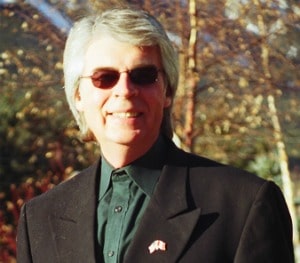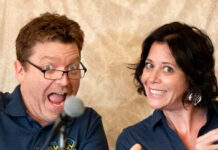
(By Ronald Robinson) So many programming executives are basing the prerequisites for their on-air performers on a set of manufactured fantasies that just don’t hold up. I am thinking of a more recent chunk of quite sincere ramblings emanating from an otherwise professional guy who enjoys a lot of credibility.
Some of the comments from this executive include an explanation that the relationship between a performer and some unknown, unspecified audience member(s) is about the necessity for a “connection.” How that so-called connection can be identified – what it sounds like, what it feels like and what it might look like, is left unsaid. Plus, how, specifically, this connection is to be developed is also left unaddressed.
Then, the programmer admonishes the talent base to identify and establish “touch points” with the audience. Again, what constitutes a “touch point” for what audience member, under what circumstances, and in what context, is again, left unexplained. The strategy for developing such “touch points” – after and if they have been identified – is left up to anyone who might want to approach the matter.
I have to assume that one of the methods is to exhaust the talent by running them all over town, pressin’ the flesh, kissin’ babies, and participating as a celebrity judge during local bake-off competitions. Yeah. That might just do the trick. The personal touch.
Not to load on to any one pundit in particular, I am reading another, supposedly, professional broadcaster who is recommending the on-air talent also become a source of advice to callers-in. Now, this is stretching the threshold where we’re getting crazy. Why programmers continue to insist that talent and audience members must be personally bonded – one to another, one-at-a-time – I am finding to be quite disturbing.
Again, the whole point of the exercise is not only being glossed over, it is being ignored entirely. And that point is: radio requires talent that is proficient at any number of communication skills. There is a tragic irony in all this, as well. Programmers just can’t seem to come to grips with the fact that the very best way to “connect” with any audience is to present them with superior on-air performers. It is totally unnecessary that audience members “pal up” with the presenters outside of the on-air process, and certainly not as some distorted fantasy.
Any presenter with the skills to do so, will, in practice and because of their abilities, be appealing to large numbers of any given audience. That capacity, alone, will be more than enough to accomplish what any station wants – more long-term listeners.
But then, here I am, touting another, different, product of the imagination. In this case, however, worthwhile results can be generated. This can only be accomplished by applying the specific and distinct knowledge and skills of an educated and practiced communicator. Of course, since these skills are currently not possessed by the great majority of presenters, these desirable outcomes cannot become a broadcasting reality.
The challenge to re-educate presenters is, to be sure, a formidable task. But the need is greater. Most radio owners and management will continue to deny that need, and will continue to bluster about non-specific ideals and attributes that have yet to be demonstrated as effective in any way, even as they do sound somewhat lofty in their pronouncements in meeting rooms and daises.
A whole industry will not be enjoying a revolution in their communicative approaches. The combination of denials and disregard for available materials guarantees that. But for the very few – the imaginative, the valiant and, perhaps, the cautiously inquisitive – opportunities to rapidly evolve a stagnant business to a vibrant and satisfying mode of continuous improvements still remain.
For decades, radio has been, consciously and/or unconsciously, destroying itself. It undertakes so many behaviors that are not in its own best interests. One could speculate that there is a self-destructive virus that has embedded itself at radio’s core and is continuing to do what it does naturally and efficiently – tear down and destroy what is already a staggering medium. There may yet arrive a happy prognosis. But, for now, that prognosis is grim.
Ronald T. Robinson has been involved in Canadian radio since the ’60s as a performer, writer and coach, and has trained and certified as a personal counselor. Email him at [email protected]







